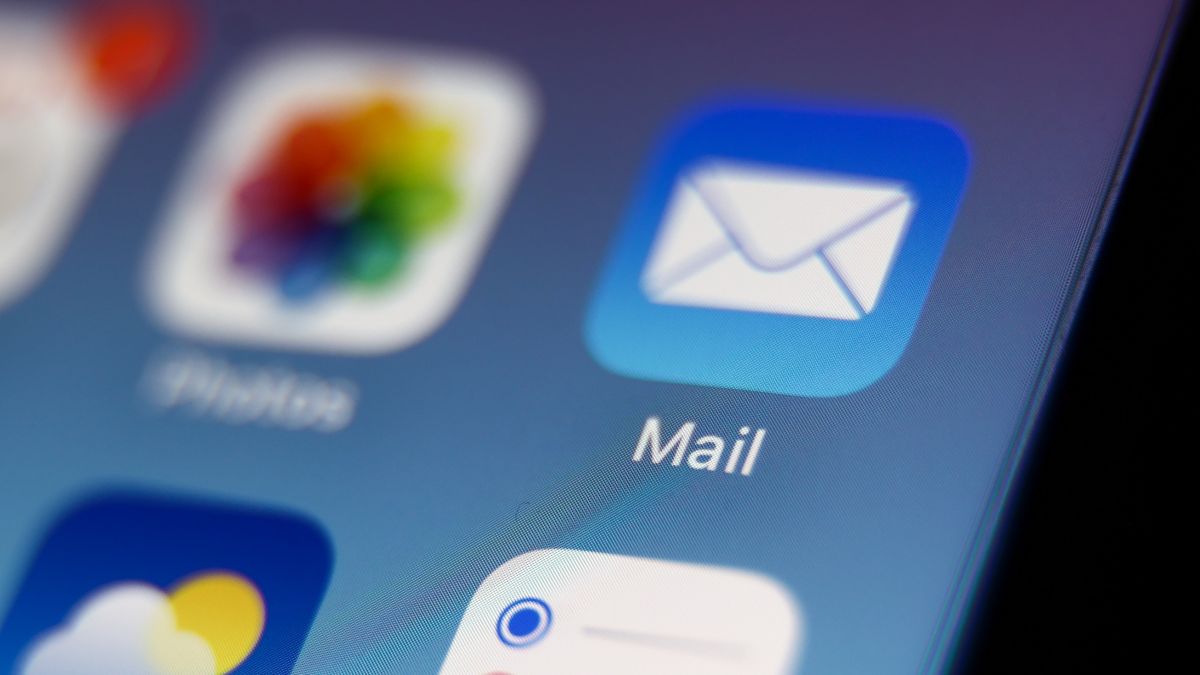Mail features one of the more intriguing app updates in iOS 18 — and potentially, one of its more frustrating updates. It’s intriguing because of the promised smarts coming to your iPhone’s inbox. And it’s potentially frustrating because not every new capability is going to find its way to every iPhone.
At the moment, updates to iOS 18 Mail don’t really seem to be available to anyone, whether they’ve downloaded the currently available developer beta or they’re waiting for the iOS 18 public beta that arrives in July. That’s by design, though — Apple has already said iOS 18’s Mail improvements won’t be coming until later this year. Presumably, the new version of the built-in mail client on your iPhone will arrive in an update to iOS 18 that arrives after the initial release of the iPhone software later this fall.
Even when the new look for Mail does show up on your iPhone, other features may not come along fro the ride. That’s because some of the more significant changes to Mail are tied to Apple Intelligence, the AI-powered features that will only work on phones with an A17 Pro chipset or later. That’s good news if you’re using an iPhone 15 Pro or iPhone 15 Pro Max, but everyone else with an iOS 18-compatible iPhone — and that includes devices released five years ago — are on the outside looking in.
Here’s what we know so far about the iOS 18 Mail changes, starting with the new features available for iOS 18 before turning to the Apple Intelligence exclusives.
iOS 18 Mail: iPhone-wide changes
New categories
Gmail users will find Apple Mail’s biggest addition in iOS 18 to be a real blast from the past. The Apple email client is breaking up your inbox into different categories to better sort all those incoming messages. Google’s email client has had that capability for a decade now.
iPhone users who rely on Mail won’t care when the feature arrives, though, so long as it imposes some order to busy inboxes. And on that front, Apple seems to be delivering with the iOS 18 update. Mail will be split into four categories — Primary, Transactions, Promotions and Updates.
Primary will be your main inbox, and it’s here that Apple says you’ll find messages from friends, family and colleagues. Additionally, time-sensitive emails will show up in the Primary category, though that feature is also touted in the Apple Intelligence preview on Apple’s website. As a result, we don’t know to what all iPhones will be able to benefit from priority messages in their Primary inbox until the iOS 18 Mail updates start showing up on phones.

Of the remaining categories, Transactions will house any receipts and invoices you receive, while Promotions will flag up deals, sales notifications and the many other marketing materials that seem to find their way into your inbox. Apple earmarks the Updates sections for things like the newsletters you subscribe to.
All this sorting takes place automatically, tapping into machine learning. Presumably, there will be a a way to train Apple Mail to put things in the proper place if it misfiles a message. There’s an example of this in the current Notes app on iOS 17 when you build a grocery list that gets automatically sorted into categories. If a grocery item is placed in the wrong category, you can reroute it, and you iPhone learns the corrected place for future lists. I’m going to assume Mail’s categorization works much the same way.
While it appears that categorization will happen in Mail on every iPhone — it is included in the main iOS 18 preview after all — the fine print does note that this feature will only work in English at launch, though it will be available in Australia, Canada, India, Ireland, Singapore, South Africa and the U.K. in addition to the U.S.
Grouped messages

If you’ve got a lot of messages from the same sender, they’ll be grouped together for easy scanning as well as to save you time hunting down a particular thread in your inbox.
The example Apple gives in its iOS 18 preview is the batch of emails you get from an airline when you book a trip. Everything related to that trip will be there, including receipts, confirmations and reminders to check in. Grouped messages will feature snippets of text, ideally giving you a flavor of what each message contains without forcing you to scan through the entire email chin.
iOS 18 Mail: Apple Intelligence
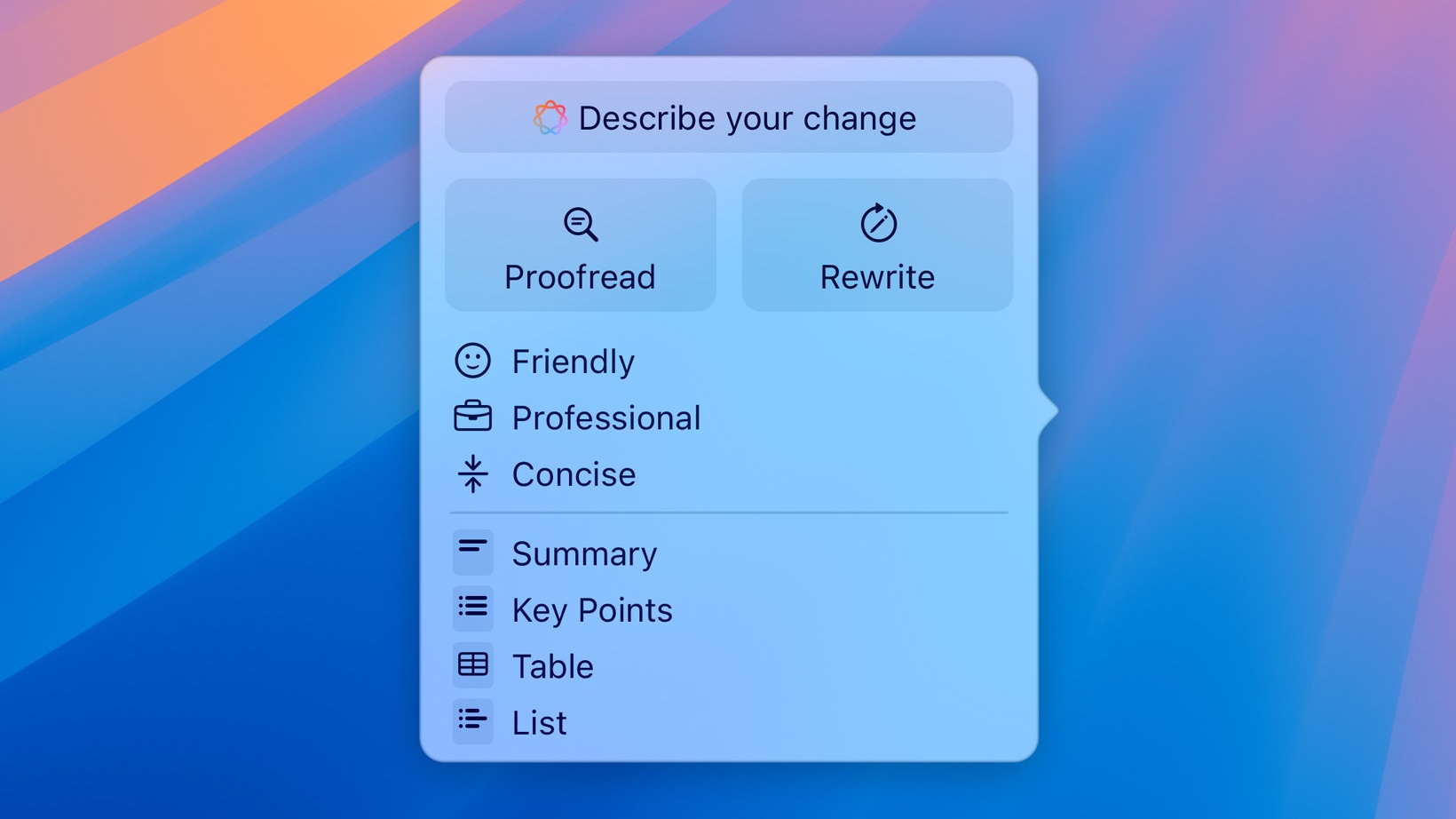
A big focus of Apple Intelligence involves writing tools to suggest tone and otherwise help you turn a blank page into a composed document. As with any iOS app that fetures writing — including third-party apps — Mail gets to tap into these specific writing tools if you’re running the Apple mail client on a device that supports Apple Intelligence features. (In other words, those writing tools are as available on your iPhone 15 Pro as they are on you M Series-powered Mac.)
But there are also Apple Intelligence specific to the Mail app that Apple has detailed.
Priority messages
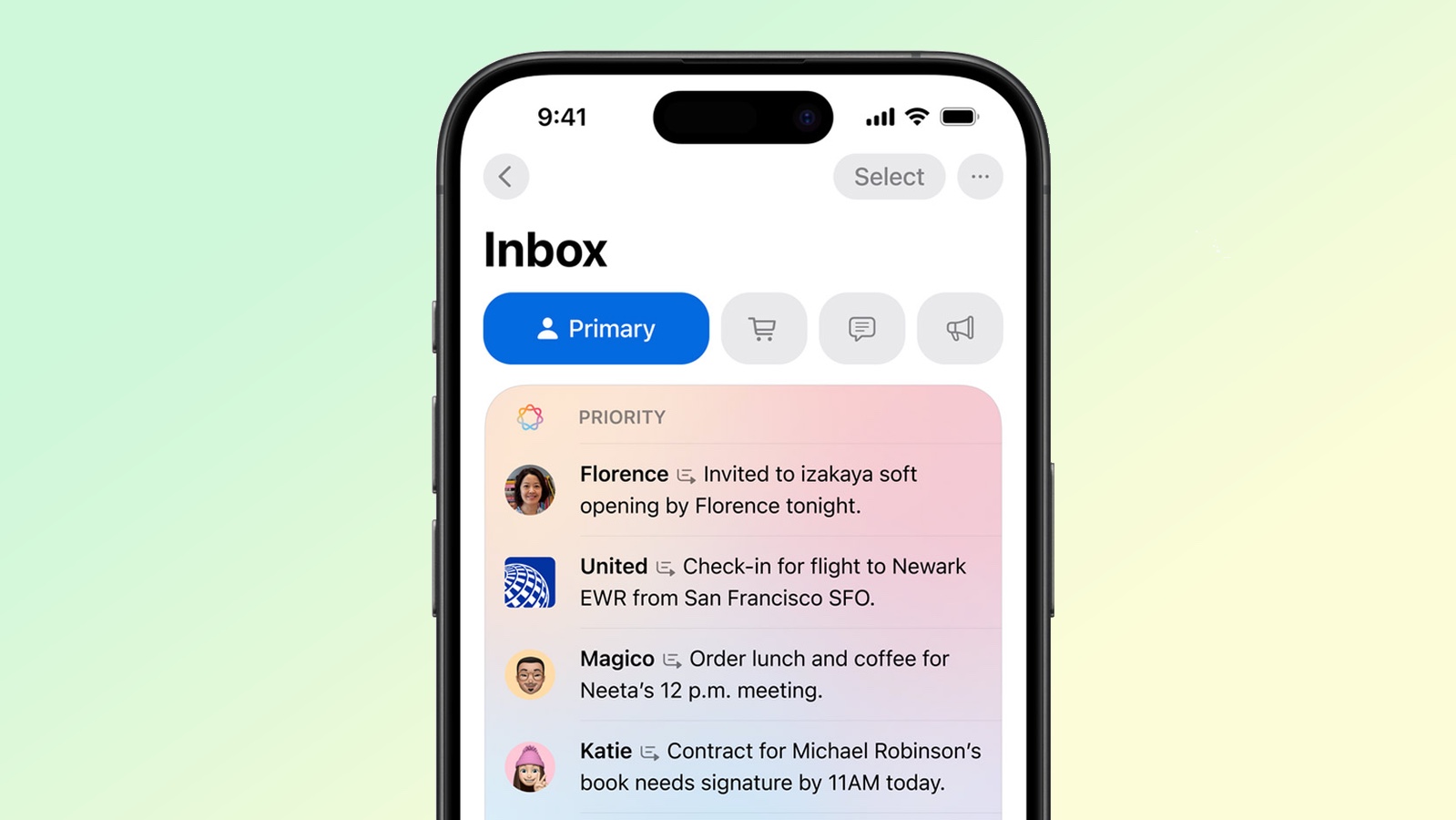
As noted above, priority messages will make sure that time-sensitive messages appear at the top of your inbox. The difference with Apple Intelligence’s take on priority messages is that you seem to get a glanceable summary of the message rather than just the usual two-line preview — at least based on the screenshots of the feature highlighted by Apple.
Message summaries
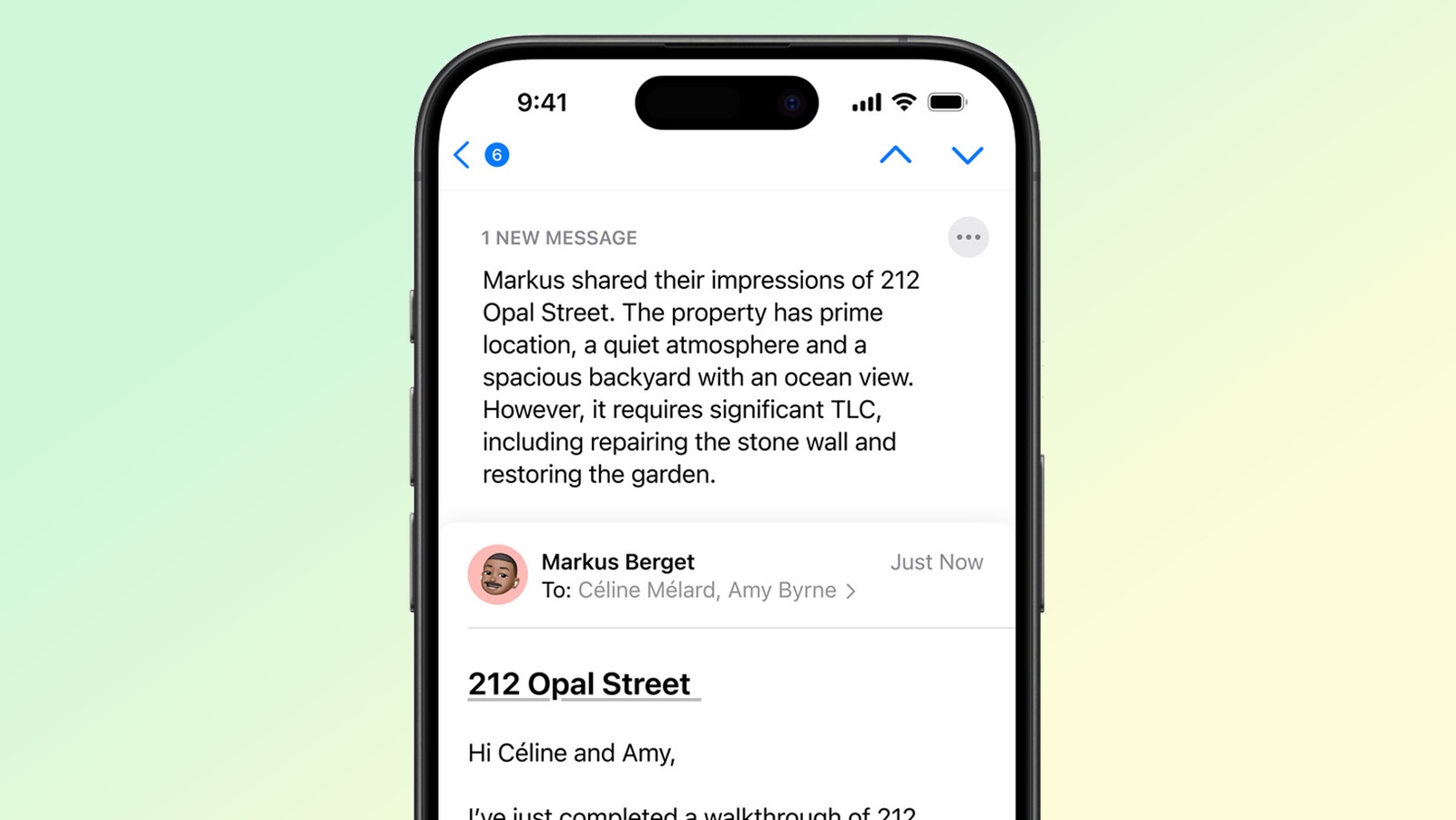
Summaries are a big part of the writing tools featured in Apple Intelligence, but they take on added prominence in the Mail app. You’ll be able to tap on the message and get an AI-produced summary highlighting the key takeaways of the email.
We’ll need to see how this works once Apple Intelligence features become available for testing. But should the summaries prove both accurate and reliable, it should be a vital time-saving tool for getting through incoming messages quickly.
Smart replies
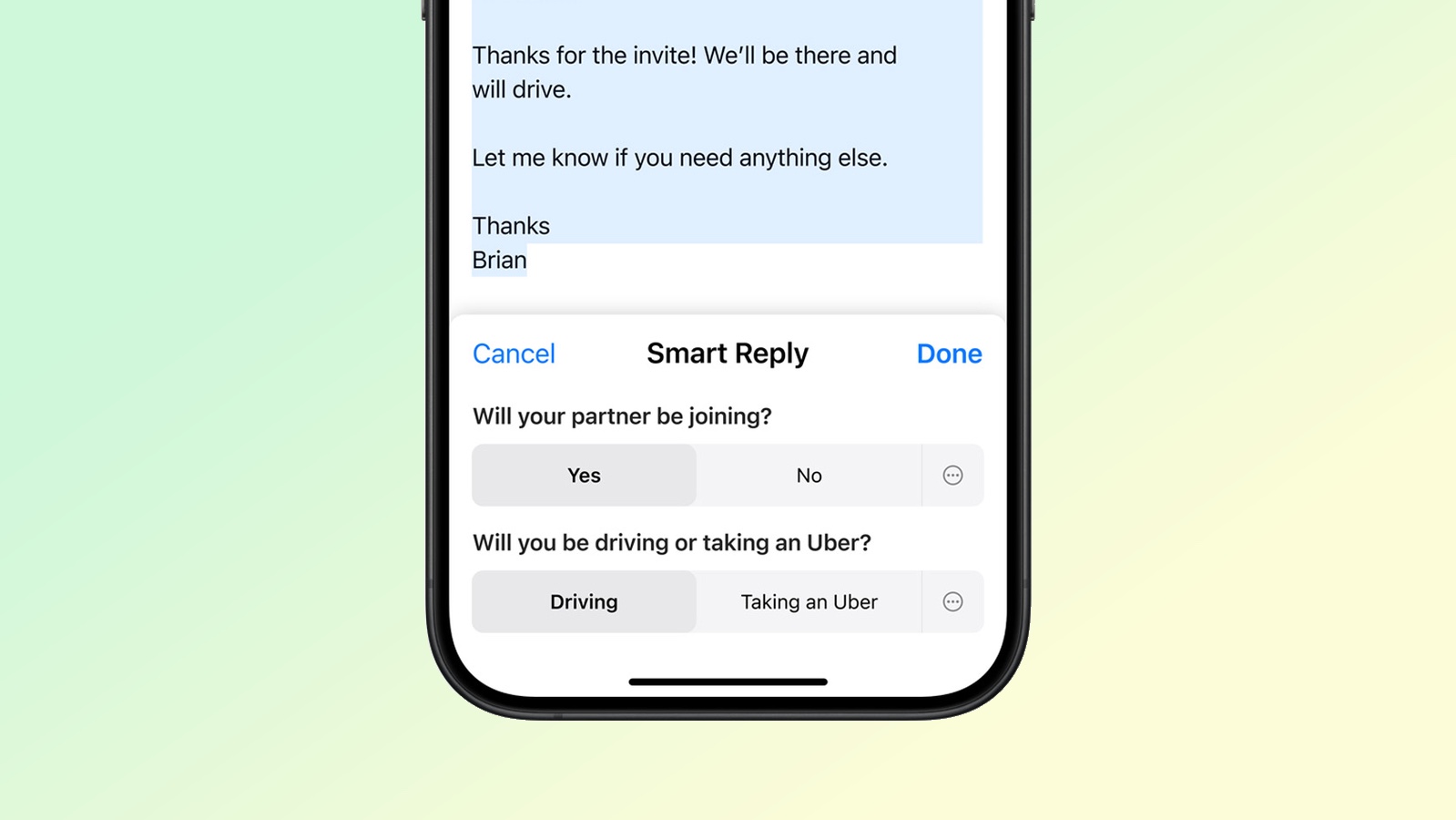
In another feature that seems inspired by an existing Gmail tool, Apple Mail is adding smart replies to its mail client. However, it sounds like Apple is taking a different approach from those pre-canned responses at the bottom of Gmail messages that you tap to turn into replies.
In Apple’s take on smart replies, Apple Intelligence flags the information you need to provide from the message you’re replying to. You tap answers to the questions, and the smart replies feature formats a response that you can then send off.
The example Apple provides uses yes/no questions, so it will be interesting to see if smart replies handles open-ended questions like “how many people are coming?” as easily as “will your partner be joining?” But that’s something we’ll find out when iOS 18 Mail improvements and Apple Intelligence make their long-awaited debuts at some point this year.

